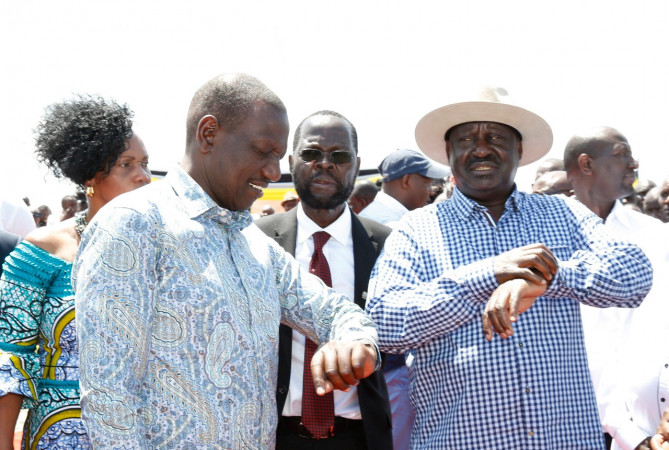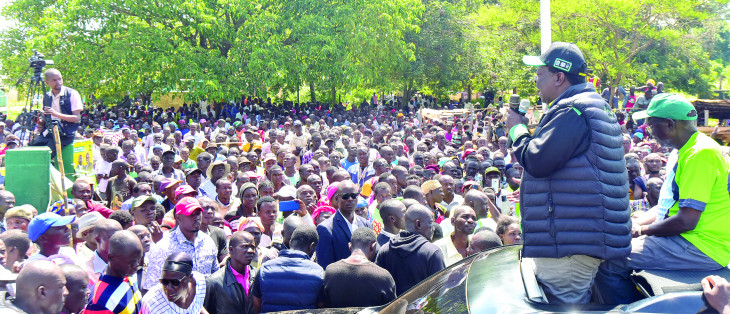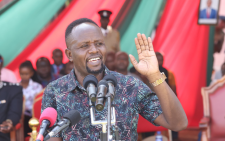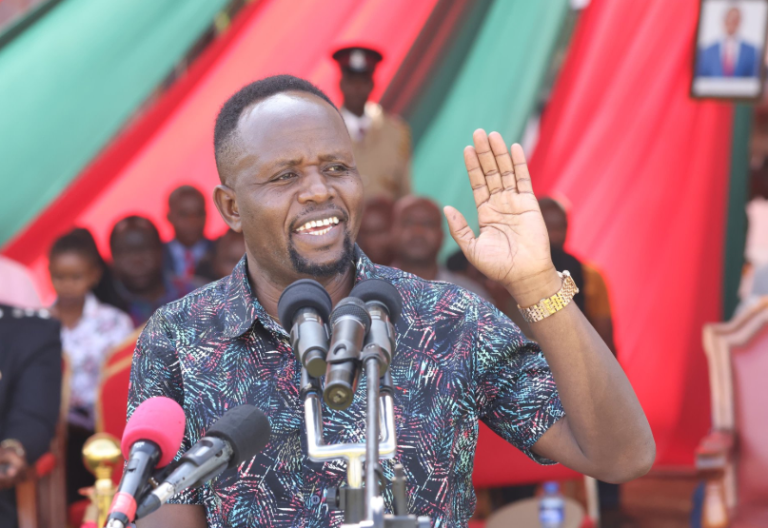Attention shifts to coalitions as Uhuru signs bill
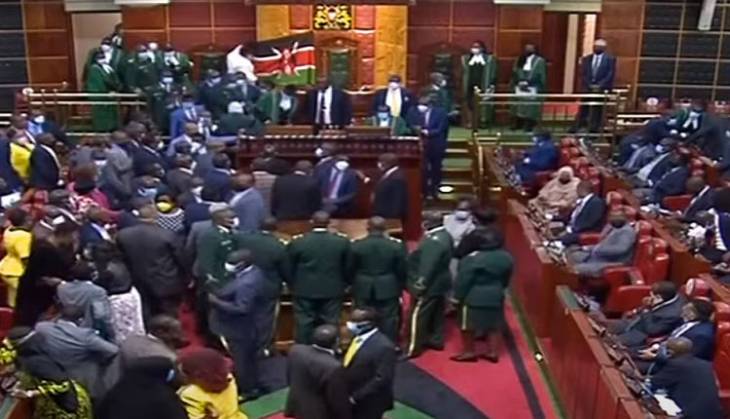
President Uhuru Kenyatta yesterday signed into law the contentious Political Parties (Amendment) Bill, setting the stage for the formation of coalition parties that could field candidates in the August elections.
The Bill did not face serious opposition in the Senate as it was easily passed. Twenty eight senators voted for it with only three opposing it.
The Act enables formation of coalition parties whose agreements must be deposited with the Registrar of Political Parties 120 days (four months) to the General election.
A coalition party will be able to field candidates for various elective seats.
This effectively paves the way for Orange leader Raila Odinga’s Azimio La Umoja movement as well as Deputy President William Ruto’s Kenya Kwanza Alliance to prepare their lists of candidates.
Ruto’s allies in the National Assembly had fiercely opposed this provision but they could not marshal enough numbers to scrap or change it.
Maintain register
The new law also clearly indicates how political party funds would be distributed.
It says that 70 per cent of the money will be shared by parties according to their total number of votes garnered in a general election, 15 per cent according to the number of members of special interest groups elected on a party, 10 per cent according to the number of members elected in the previous election and five per cent for administration of the funds.
The new law also gives powers to the Registrar to keep and maintain a register of members of political parties. The Registrar will release the register to parties upon request ahead of nominations.
For anyone to participate in a party’s nominations, they must be members of that particular outfit.
“The new law amends the Political Parties Act of 2011 by introducing the concept of coalition political parties, outlining functions of political parties as well as changing the criteria of accessing the Political Parties Fund,” said a statement from State House.
In an unexpected turn of events, Ruto allies in the Senate appeared to have relaxed their opposition to the Bill as it emerged that they, too, will need it soon in crafting a coalition deal with friendly parties.
Seal of approval
However, Nandi Senator Samson Cherargei, a Ruto ally, yesterday revealed they would challenge the new law at the High Court.
“Next stop is the courts of law to challenge this affront to the Constitution, rule of law and freedom of democracy,” he said.
Despite this, however, the DP’s camp is set to benefit from it as it crafts an alliance with Amani National Congress (ANC) leader Musalia Mudavadi and his Ford Kenya counterpart Moses Wetangula.
The trio is working on a coalition agreement that could see them field a joint presidential candidate under the Kenya Kwanza Coalition.
On Wednesday, senators passed the Political Parties (Amendment) Bill by an overwhelming majority paving the way for its assent.
Hours later, the President gave it a seal of approval at a ceremony held at State House, Nairobi.
Uhuru has been keen on the passage of the Bill as it allows politicians supporting his Handshake with Raila to form a Narc-like coalition under the Azimio La Umoja movement.
In 2002, opposition parties coalescing under the National Rainbow Coalition (Narc) came together to dislodge then ruling party Kanu from power.
A well-crafted plan by the Handshake partners is to have a law that will allow political parties to field candidates jointly across the country under the coalition party ahead of the August polls.
The aim, according to its proponents, is to prevent the self-cannibalisation of parties and candidates supporting the Azimio movement, through which Raila is expected to vie for the presidency.
Vicious fights over millions of shillings from the exchequer was at the heart of the dramatic disintegration of the National Super Alliance (Nasa) after Raila’s ODM party was accused of shortchanging its partners.
It is expected that the new law will make it easier to distribute the funds.
Among the pitfalls of the law is that political parties seeking to enter coalitions could be staring at a nomination nightmare, as they will have to conduct joint nominations for all elective seats.
The law further denies parties millions of shillings in nomination fees.
Parties usually charge aspirants seeking to contest on their tickets, with some paying as much as Sh1 million for the governor’s seat.
Under the new law, candidates can choose to pay the coalition.
The dominance of certain political parties such as ODM and UDA that enjoy nationwide support is also at risk as they will now have to operate under the umbrella of the coalition party.
Distribution of funds
Yesterday, Kitui Senator Enock Wambua said the new law ensures that distribution of funds to political parties will not be left in the hands of leaders of political parties.
“It’s in the law and funds will be shared in accordance with the provisions of the law.
The law is also progressive in terms of defining the pre and post-election coalition including going to the extent of coming up with a coalition political party,” said Wambua.
Lauding the passage of the Bill, Nominated Senator and ODM deputy secretary general Agnes Zani said a country is as vibrant as its political parties and Kenya has more than 70 political parties that require proper regulation.
“The order in those political parties finally creates the order that is needed in our country. I think this law is coming at the right time when we are moving towards elections.
Also, various coalitions have had problems and haven’t had a way to resolve those problems, this law provides those mechanisms,” said Zani.
